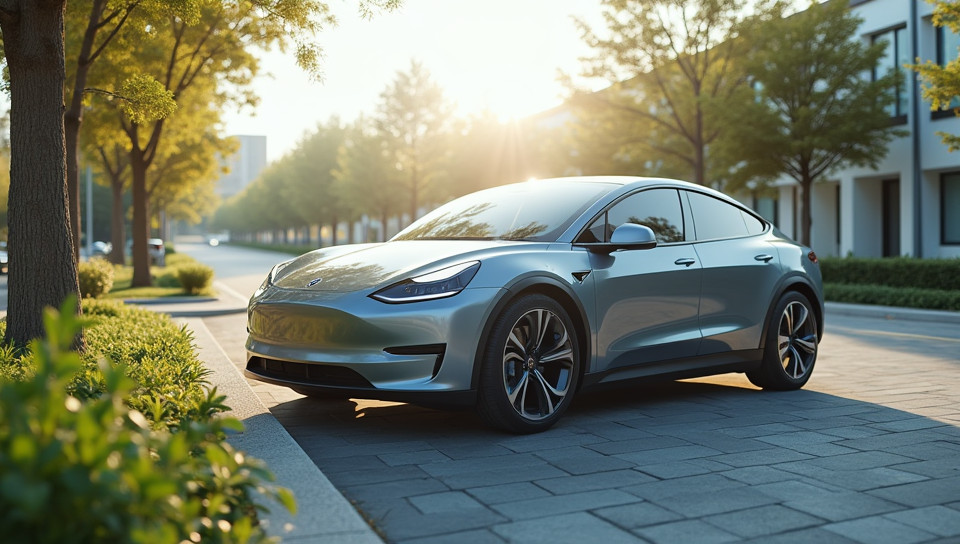Electric vehicles reduce greenhouse gas emissions significantly compared to traditional cars 87%

The Future of Transportation: How Electric Vehicles Are Revolutionizing the Way We Travel
As we navigate the complexities of climate change, it's becoming increasingly clear that our reliance on fossil fuels is no longer sustainable. The transportation sector, in particular, has been identified as a major contributor to greenhouse gas emissions, accounting for nearly 15% of global carbon dioxide emissions. However, there is hope on the horizon. Electric vehicles (EVs) are rapidly gaining popularity, and for good reason: they have the potential to significantly reduce our reliance on fossil fuels and mitigate the negative impacts of transportation on the environment.
The Benefits of Electric Vehicles
Electric vehicles offer a cleaner, more efficient alternative to traditional gasoline-powered cars. Here are just a few reasons why EVs are gaining traction:
- Lower emissions: EVs produce zero tailpipe emissions, reducing air pollution in urban areas and mitigating climate change.
- Improved fuel efficiency: EVs convert about 60% of the electrical energy from the grid to power the wheels, while gasoline-powered vehicles only convert about 20% of the energy in gasoline to power the wheels.
- Reduced operating costs: EVs require less maintenance than traditional cars and can save drivers money on fuel costs.
The Impact on Greenhouse Gas Emissions
So, just how significant is the reduction in greenhouse gas emissions when we switch from traditional cars to electric vehicles? According to a study by the Union of Concerned Scientists, widespread adoption of EVs could reduce U.S. greenhouse gas emissions from transportation by up to 1.8 billion metric tons per year.
The Future of Transportation
As governments and consumers increasingly recognize the benefits of electric vehicles, we can expect to see significant investments in infrastructure and technology that support the growth of the EV market. This includes:
- Expansion of public charging networks
- Development of more efficient battery technologies
- Increased adoption of renewable energy sources to power our grid
Conclusion
The shift towards electric vehicles is not just a step in the right direction; it's a necessary one. As we continue to navigate the challenges of climate change, it's clear that EVs will play a critical role in reducing greenhouse gas emissions and creating a more sustainable transportation sector for generations to come. By investing in EV technology and infrastructure, we can create a cleaner, healthier future for ourselves and our planet.
- Created by: Maria Thomas
- Created at: Aug. 14, 2024, 11:21 p.m.
- ID: 7182






